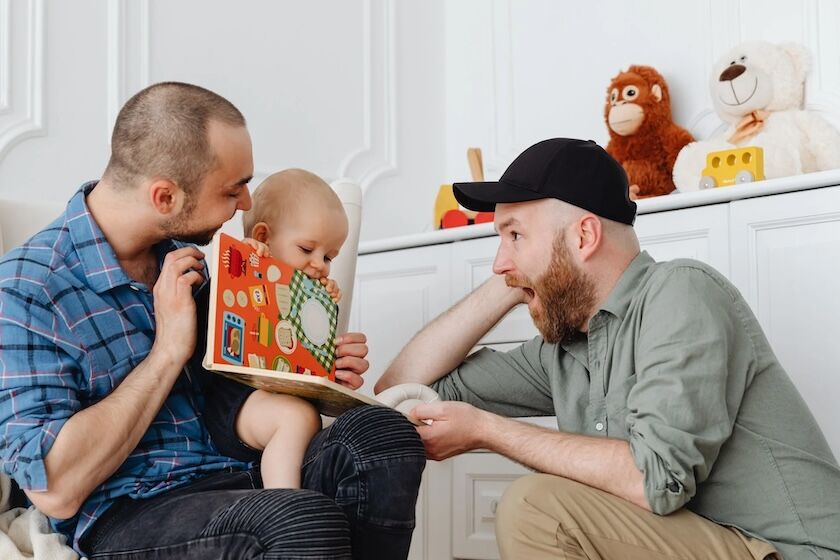
Parenting Styles: Is Your Relationship Over When You Disagree on Parenting the Kids?
As a couples therapist specializing in parenting issues, I often see parents who disagree about how to raise their children. The most common of these disagreements revolve around how to discipline their children.
Arguments about how to discipline kids can be about whether it’s too much or too little discipline. Sometimes, one of the parents may feel their child is taking advantage of them, while the other parent thinks that more discipline will only create unnecessary conflict. Sadly, each parent can begin to feel they are undermining one another.
From undermining one another around parenting, the couple soon begins a pattern of a power struggle. That power struggle can bleed into all parts of their relationship. Once a couple becomes locked into a power struggle, each partner begins to take a stronger stand on all topics to prove they are right.
Unfortunately, when the power struggle happens and sticks – the relationship dynamic changes to become more about being right and not losing the “upper hand” in the relationship. When the couple gets to this point of focusing on winning and no longer working together as a team, they head into much heartache for themselves, the relationship, and the entire family. So, what to do if you’re stuck in this pattern with your partner and disagree on parenting styles?
How To Manage Parenting Styles That Don’t Match

First of all, there’s hope when parenting styles don’t match! Here are a few parenting tips to get you and your partner back on the same team, deepen your relationship, and strengthen the family dynamic.
Parenting Tip #1:
First, having two perspectives when parenting is a huge advantage! Look at it as a positive.
For example, when embroiled in the emotions of how to handle a temper tantrum, or when your child is demanding that you do something right now, and they hate you, having another adult person who is less emotionally triggered at that moment can take a lot of pressure off if we allow it.
When you can’t see that we are so affected by our upbringing that we are being unreasonable, it helps to have another opinion. Changing your perspective is helpful to see it as a benefit, not a hindrance.
Most decisions can wait until you’ve allowed time and space to gather another perspective. Then, you are most able to make a more conscious choice. One of my favorite strategies in these pressure-filled moments is to tell a child making a demand the following:
- “If you want an answer immediately, it is no. If you can wait, the answer is maybe.”
Then, slow down, breathe, and take your time. Discuss with your partner and make an agreed-upon decision you’ll both feel good about.
Parenting Tip #2:
As parents, you can make more conscious choices together if you take the time to have those critical and serious adult conversations about values. For example:
- What are the most important values you want your children to adopt?
- Think about what kind of person you want your child to be when they leave the “nest.”
- What kind of father/mother, husband/partner (and more) do you want your child to become?
It’s essential to take a moment to write down each of these values you want for your children. Then, the next step is to discuss those values together as a family. Lastly, make an action plan and decide as parents how you want to teach your children values. You can have fantastic ideas for raising your children, but making a concrete plan changes the dynamic for the whole family.
When going through this process, please be mindful if you feel dug in or firm on your limits. These stuck moments are often tied to your childhood values and goals you can work toward while becoming more flexible for your new family values.

Parenting Tip #3:
Finally, it’s essential to model the new parenting behavior for your children and each other as a couple. For example, if you want a family environment filled with patience, the next time you feel your patience being tested – it’s up to you to model a gentle and patient response to a stressful moment.
As a couple, if you’re having a conflict, it’s vital to show your children that the conflict can work out and your differences can come to a mutually agreed upon resolution.
Teaching your kids about healthy conflict resolution is one of the most important values you can pass on. It’s never too late. There is always hope! So, start today to teach your children to problem solve. Show your children the following in conflict resolution
- Model the steps of identifying the problem
- Consider the possible solutions
- Carry through with the agreed-upon action plan
- Review how your action plan went together
- Be flexible when revisiting the plan, and make agreed upon modifications
Children learn from your example, and will follow the plan. Children can do the conflict resolution plan with you and eventually without you to solve school, home, and any conflict they are faced with in their lives.
I hope these tips help you and your partner look at parenting styles and how, when styles differ, it’s still possible to work together and create the family environment you both genuinely want and desire. After all, the goal as a parent is to raise healthy, independent, responsible adults!
If you’re ready to learn more about parenting styles and discovering what works best for you and your partner, we’re here to help with our online and in-person Imago Relationship Workshops and Relationship Therapy.